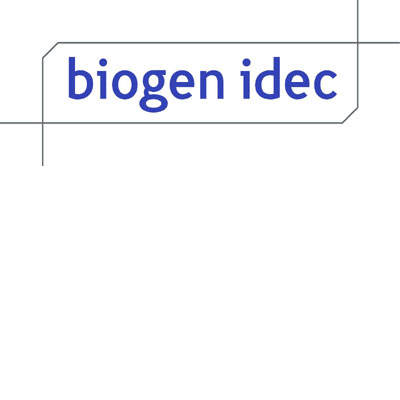Biogen Idec announces positive top-line results from second Phase 3 Trial investigating Oral BG-12 (Dimethyl Fumarate) in Multiple Sclerosis
Posted: 26 October 2011 | | No comments yet
Positive top-line results announced…


Today Biogen Idec (NASDAQ: BIIB) announced positive top-line results from CONFIRM, the second of two pivotal Phase 3 clinical trials designed to evaluate the investigational oral compound BG-12 (dimethyl fumarate) in people with relapsing-remitting multiple sclerosis (RRMS). Results showed that 240 mg of BG-12, administered either twice a day (BID) or three times a day (TID), demonstrated significant efficacy and favorable safety and tolerability profiles. Further analyses of the CONFIRM study are ongoing, and the company anticipates presenting detailed data at a future medical meeting.
BG-12 met the CONFIRM study’s primary endpoint by significantly reducing annualized relapse rate (ARR) by 44 percent for BID (p< 0.0001) and by 51 percent for TID (p< 0.0001) versus placebo at two years. The CONFIRM study’s reference comparator, glatiramer acetate (GA; 20 mg subcutaneous daily injection), reduced the ARR by 29 percent (p< 0.02) compared with placebo at two years.
In addition to significantly reducing ARR, BG-12 met all secondary relapse and MRI endpoints for both dose regimens. Results for the BG-12 and GA treatment groups at two years compared with placebo included:
- BG-12 reduced the number of new or newly enlarging T2-hyperintense lesions by 71 percent for BID (p<0.0001) and by 73 percent for TID (p<0.0001), while GA provided a 54 percent (p<0.0001) reduction.
- BG-12 reduced new T1-hypointense lesions by 57 percent for BID (p<0.0001) and by 65 percent for TID (p<0.0001), while GA provided a 41 percent (p<0.003) reduction.
- BG-12 reduced the proportion of patients who relapsed by 34 percent for BID (p<0.003) and by 45 percent for TID (p<0.0001), while GA provided a 29 percent (p<0.01) reduction.
Initial results showed that BG-12 reduced 12-week confirmed disability progression as measured by the Expanded Disability Status Scale (EDSS) by 21 percent for BID and 24 percent for TID at two years compared to placebo, and GA reduced confirmed disability progression by 7 percent. While these results were not statistically significant, they may be attributable to the unexpectedly low rate of disease progression in the placebo group, which was approximately half of what has been seen in clinical trials of approved and experimental multiple sclerosis (MS) therapies. Further analyses of this endpoint are underway.
“We now have strong positive results for BG-12 in two robust pivotal clinical trials with more than 2,600 patients,” said Doug Williams, Ph.D., Biogen Idec’s Executive Vice President of Research and Development. “We are gratified by these strong efficacy and safety results, which, when combined with BG-12’s oral route of administration, position it as a potentially important MS therapy. We are working aggressively to prepare our regulatory submissions with the goal of making BG-12 available to MS patients as quickly as possible.”
In CONFIRM, both dose regimens of BG-12 showed favorable safety and tolerability profiles, which were similar to those seen in DEFINE. Overall, the incidence of adverse events (AEs), serious adverse events (SAEs) including serious infections, and discontinuations due to AEs were similar across all study groups, including placebo. The incidence of hepatic and renal events was also comparable among all study groups. The most common AEs in the BG-12 groups were flushing and GI events. There were no malignancies in the BG-12 groups.
Biogen Idec presented detailed data from BG-12’s first Phase 3 clinical trial, DEFINE, at the 5th Joint Triennial Congress of the European and Americas Committees on Treatment and Research in Multiple Sclerosis (ECTRIMS and ACTRIMS) in October 2011.
About the CONFIRM Trial
The CONFIRM (Comparator and an Oral Fumarate In RRMS) clinical trial was a global, randomized, double-blind, placebo-controlled, dose-comparison study to determine the efficacy and safety of BG-12 and enrolled 1,430 people with RRMS. The study evaluated two dose regimens of BG-12, 240 mg twice a day and 240 mg three times a day, as well as a reference comparator of GA. Both BG-12 and GA groups were evaluated versus placebo.
The primary endpoint was to determine whether BG-12 was effective in reducing the rate of clinical relapses at two years. Additional endpoints at two years included reduction in the number of new or newly enlarging T2-hyperintense lesions; in new T1-hypointense lesions; in the proportion of patients who relapsed; and progression of disability as measured by EDSS. Safety and tolerability of BG-12 were also assessed.
About BG-12
BG-12 (dimethyl fumarate) is an investigational oral therapy in late-stage clinical development for the treatment of RRMS, the most common form of MS. BG-12 is the only compound in clinical trials for the treatment of MS known to activate the Nrf2 pathway. Research suggests that BG-12 has the potential to reduce the activity and impact of inflammatory cells on the Central Nervous System (CNS) and induce direct cytoprotective responses in CNS cells. These effects may enhance the CNS cells’ ability to mitigate the toxic inflammatory and oxidative stress that plays a role in MS pathophysiology.




